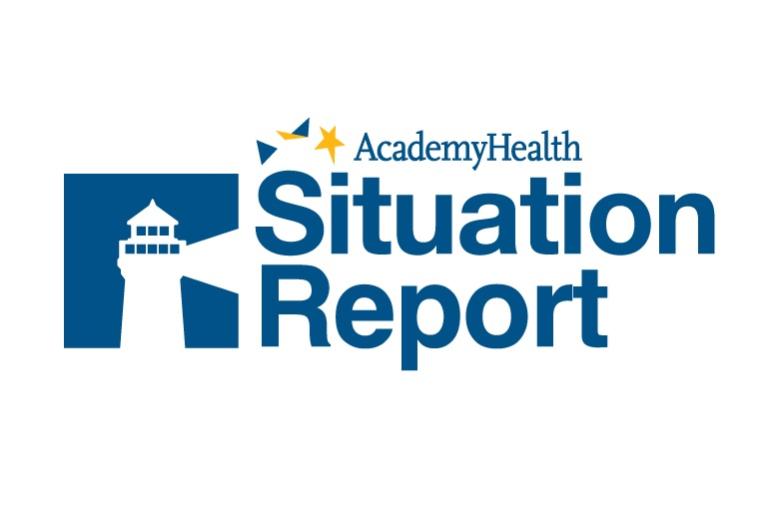
Federal agencies, including the Department of Health and Human Services, have faced significant personnel reductions, sparking legal challenges and concerns over the loss of institutional knowledge. As these force reductions ripple through the public health workforce, professionals nationwide are navigating the impacts and seeking resources for guidance. Tools like Democracy Forward’s “Civil Service Strong” are emerging to support affected individuals with appeals and legal navigation. Meanwhile, new resources are emerging to aid the community in tracking and accessing public data, such as the DataLumos and Data Rescue Project, which archive crucial governmental information.
In today’s issue:
- Force Reductions Hit Health Agencies
- New Resources for Crowdsourced Public Data and Impoundment Tracker
- Strategies for Navigating Budget Reductions
- Support Federally Funded Health Services Research
Force Reductions Hit Health Agencies
Since our last issue, there have been numerous reports of weekend terminations across the federal agencies, including the Department of Health and Human Services. As with many such actions over the last few weeks, legal challenges are in process; you can learn more via this Washington Informer summary.
The collective loss of institutional knowledge and capacity within the federal and public health workforce will have a significant impact on our field, and colleagues in Washington and around the country have been affected. While the attention in the news has been on probationary employees, this is not synonymous with new hires. In some cases, these are long-time federal employees who were recently placed back on probationary status as the result of a promotion or other role transition within the government. This situation is particularly concerning since these nonpartisan employees are crucial to ensuring programs are managed and services are delivered fairly, efficiently, and as enacted.
Multiple sources noted that affected individuals can file an appeal with the merit systems protection board (MSPB). When doing so, it is advisable to be well-prepared and maintain thorough documentation of all communications and interactions. Approach these processes with a focus on information gathering and clear record-keeping. In related news, as of Tuesday afternoon, a judge had reinstated recently fired MSPB board member Cathy Harris.
Individuals looking for advice and information on filing a claim can learn more via Democracy Forward’s new “Civil Service Strong” tool. The website has updates on current litigation, as well as guidance on how to file an appeal with the MSPB and tips for creating a “virtual employee ‘go bag’” among other FAQs and one-pagers. Access the resources for free at https://www.civilservicestrong.org/resources.
As a reminder, you can browse AcademyHealth’s Career Center for free at any time.
New Resources for Crowdsourced Public Data and Impoundment Tracker
AcademyHealth is tracking emerging sources of information that may be useful to our community. Among these are crowdsourced efforts to identify, archive, and publish public data produced and offered prior to January 28, 2025 and trackers for impoundment and executive actions.
- DataLumos archives and shares valuable public data, supporting government and social research.
- Data Rescue Project is a clearinghouse for data rescue-related efforts and data access points for at risk public US governmental data.
- The Congressional Integrity Project is offering an Impoundment Tracker (impoundment is the term for Presidential actions to withhold funding appropriate by Congress) documenting current activities related to federal funding pauses and delays.
Strategies for Navigating Budget Reductions
AcademyHealth Board member Andrew Ibrahim, MD, MSc, shared a helpful post on LinkedIn regarding strategies for sustaining momentum amid budget reductions. The post’s tips evolved from strategies Dr. Ibrahim’s team developed to be more efficient but, as he writes, “carry new significance in the current moment.” He highlights the following six strategies:
- Get a clear picture of your funding sources.
- Examine both variable and fixed costs.
- Leverage internal partnerships.
- Diversify your funding portfolio.
- Limit inefficient tasks.
- Invest in team culture.
Support Federally Funded Health Services Research
The Friends of the Agency for Healthcare Research and Quality (AHRQ) have released an opportunity for organizations to sign on to a letter to Congress calling on the Agency to be fully funded in FY26. You can read the letter and have your organization sign it here. The deadline is February 27. If you want to join the Friends listserv, email us at Advocacy@academyhealth.org.
Previous Updates
This is the fourth in a series of Situation Report updates from AcademyHealth. You can find prior issues below:
- Feb. 10: Introducing AcademyHealth’s Situation Report: Timely Insights & Resources for the Moment
- Feb. 12: AcademyHealth Situation Report: NIH abruptly slashing indirect grants. What this means for researchers.
- Feb. 14: AcademyHealth's Situation Report: Opportunity to Support Agency for Healthcare Research and Quality
AcademyHealth's Situation Report is free and available to all but if you want to support our work, become a member here.